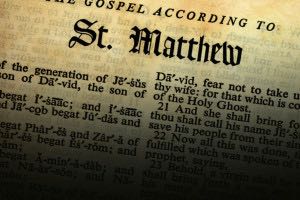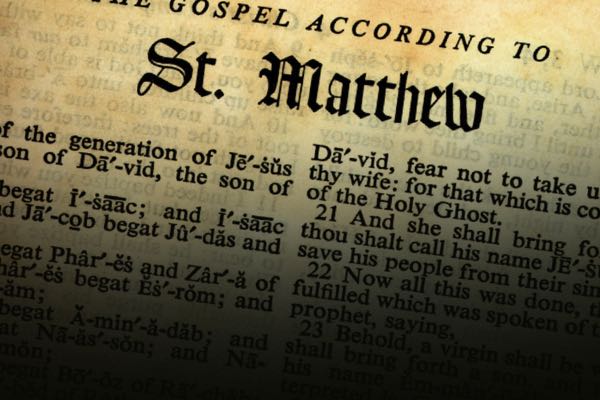
The Accounts Reflect “Perspective” and “Purpose”
There are many important events, sermons, conversations, parables and characters that are unique to one particular Gospel or another. This is not uncommon when examining concurrent eyewitness accounts. Each eyewitness brings his or her own perspective and purpose to the account; eyewitness testimonies are as unique and divergent as the eyewitnesses themselves. If we were to discard every account in scripture unless it was repeated in all four Gospels, there wouldn’t be much left to talk about, and if all four Gospels contained an identical account, there wouldn’t be any need for more than one of them! This is why we have four separate Gospels to begin with; the breadth and depth of knowledge related to Jesus can only be found in the cumulative eyewitness accounts of these testimonies.
The Most Detailed Gospels Include the Account
As it turns out, two of the four Gospel writers did choose to include the account of the virgin conception in their narrative. Not surprisingly, these two Gospel writers (Luke and Matthew) have also provided us with the most detailed and comprehensive Gospels. The Gospel of Luke and the Gospel of Matthew are the most voluminous of the four Gospels and they include many details that are omitted by Mark and John. It shouldn’t, therefore, surprise us that Luke and Matthew would also choose to include the details of the “virgin conception”. Luke even tells us in advance that he purposed to give us as complete an account as possible:
Luke 1:1-4
Inasmuch as many have undertaken to compile an account of the things accomplished among us, just as they were handed down to us by those who from the beginning were eyewitnesses and servants of the word, it seemed fitting for me as well, having investigated everything carefully from the beginning, to write it out for you in consecutive order, most excellent Theophilus; so that you may know the exact truth about the things you have been taught.
The Account is “Double Attested”
The “virgin conception” is well supported by the New Testament even though it is not fully described in every Gospel account. From a Jewish and early Christian perspective, the “virgin conception” is a claim substantiated by a Biblical and cultural criteria known as “double attestation”; it is supported by the testimony of two separate witnesses. Matthew’s account relies upon the testimony of Joseph as he described his visit with the angel. Luke’s account relies upon the testimony of Mary as she described her visit with Gabriel and her own person experience as a virgin. As a result, the two Gospels, coming from two different sources, demonstrate the expected variation that comes from independent testimony and is affirmed by two independent sources.
The virgin conception of Jesus was described early in Christian history by two sources. It wasn’t added late or borrowed from pagan mythologies. It is a reliable piece of information about Jesus, even though it doesn’t appear in every Gospel.
The virgin conception of Jesus was described early in Christian history by two sources. It wasn’t added late or borrowed from pagan mythologies. It is a reliable piece of information about Jesus. Share on X
J. Warner Wallace is a Dateline featured Cold-Case Detective, Senior Fellow at the Colson Center for Christian Worldview, Adj. Professor of Christian Apologetics at Talbot School of Theology, Biola University, author of Cold-Case Christianity, God’s Crime Scene, and Forensic Faith, and creator of the Case Makers Academy for kids.
Subscribe to J. Warner’s Daily Email
J. Warner Wallace is a Dateline featured cold-case homicide detective, popular national speaker and best-selling author. He continues to consult on cold-case investigations while serving as a Senior Fellow at the Colson Center for Christian Worldview. He is also an Adj. Professor of Christian Apologetics at Talbot School of Theology, Biola University, and a faculty member at Summit Ministries. He holds a BA in Design (from CSULB), an MA in Architecture (from UCLA), and an MA in Theological Studies (from Gateway Seminary).
































